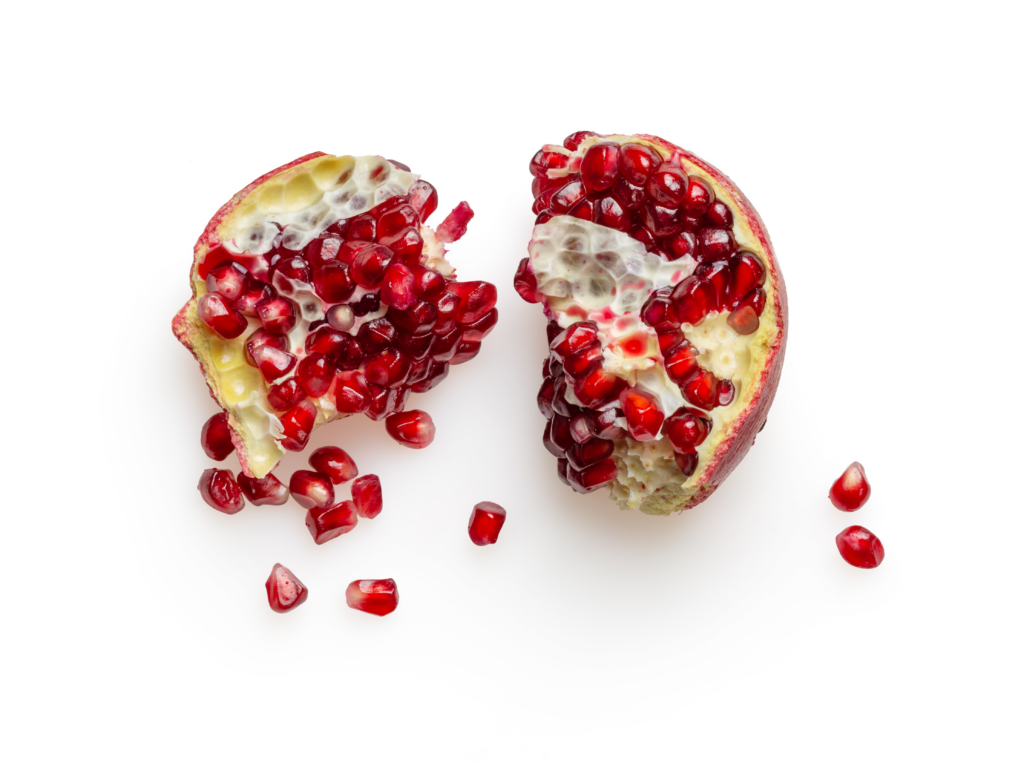A fruit with many seeds, the pomegranate is the traditional representation of fertility and seems to have its origins everywhere. The pomegranate was cultivated in Egypt and it was found in the Indus valley so early that there is a word in Sanskrit for pomegranate that is “दाडिमः” Or Dadim.
Just looking at the pearl-red colored small and juicy pomegranate grains, one can feel its sweet taste in the mouth. This fruit is not only full of taste but also a mine of many medicinal properties.
In Ayurveda, pomegranate is said to be a very miraculous fruit and it is also said that many diseases can be cured by its use. Not only the pomegranate fruit but the whole tree is full of medicinal properties. The medicinal properties of pomegranate include antioxidative (destroying free radicals), antiatherogenic (preventing fat deposition in the arteries), antihypertensive (lowering blood pressure), anti-inflammatory (reducing inflammation), antidiabetic (lowering blood sugar), antimicrobial (destroys microscopic bacteria), antiplaque (removes plaque deposited on teeth), antiparasitic (destroys parasites), antifungal (kills fungus), antiviral (inhibits the effect of virus reducing), antiproliferative (inhibiting the growth of malignant cells), antitumor (inhibiting tumor growth) and anticancer (reducing the effect of cancer).
The perceived flavor of pomegranate fruit results from the combination of various tastes, aromas, and mouthfeel sensations. The taste is governed mainly by the presence of sugars and organic acids Native pomegranates are sour-sweet. Pomegranates that are kernel-free are very sweet.
Moreover, the medicinal properties are found in buds and peels than in fruits. The peels of pomegranates can be dried out and ground into a fine powder to be steeped in hot water and consumed as tea.
Due to the amazing taste and medicinal properties, pomegranate is seen as a healthy fruit. Pick one up the next time you are in our garden or plant one in your own backyard!
Aditi Patel

